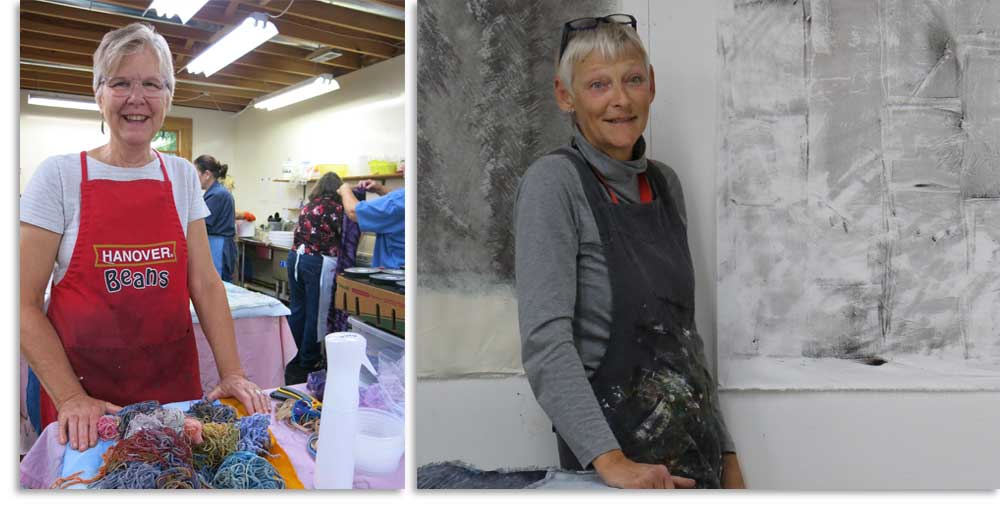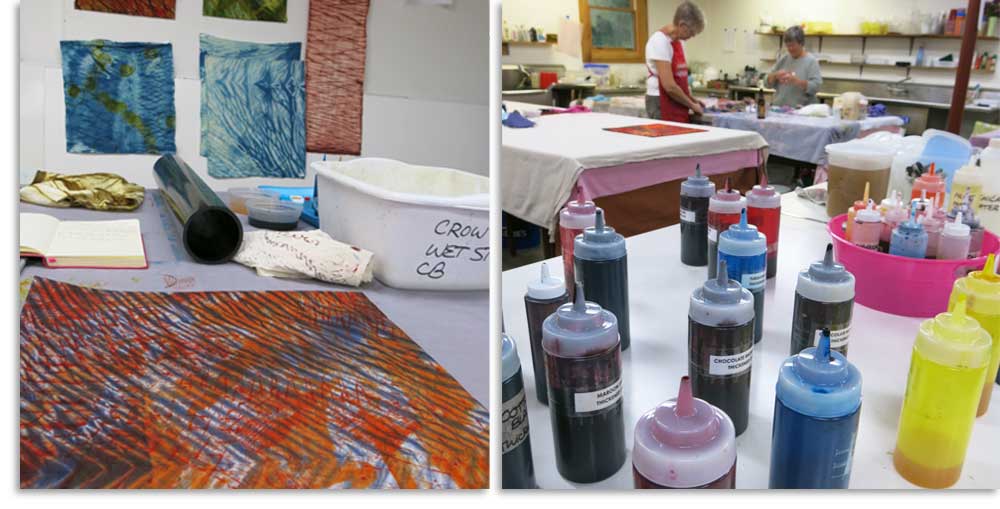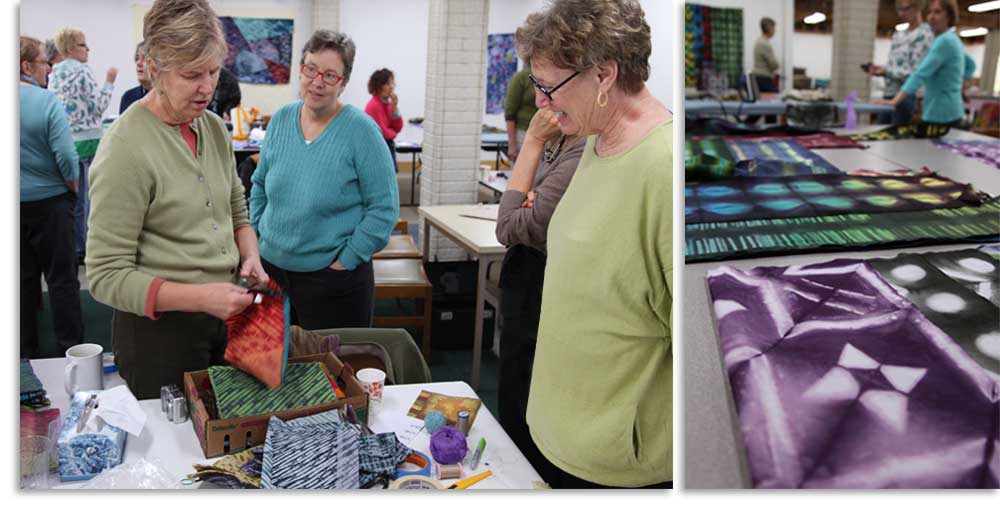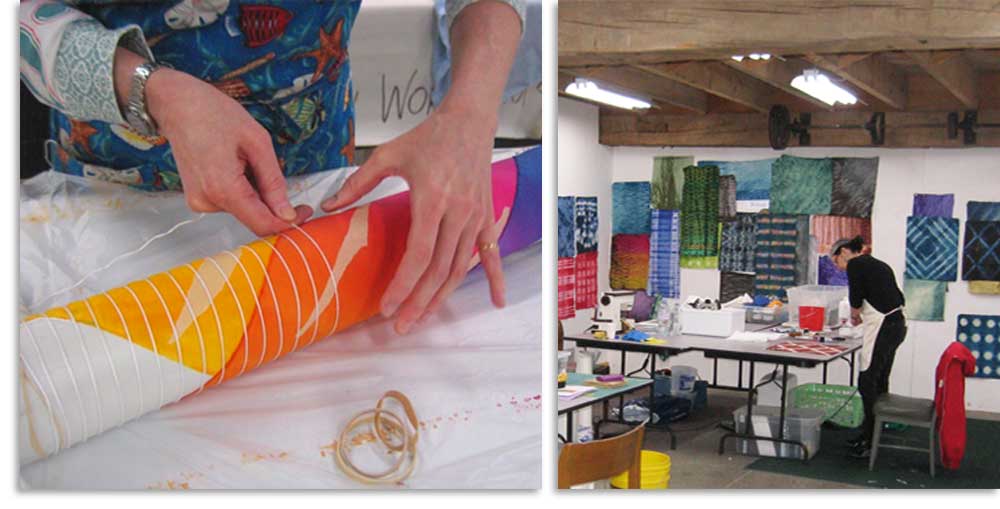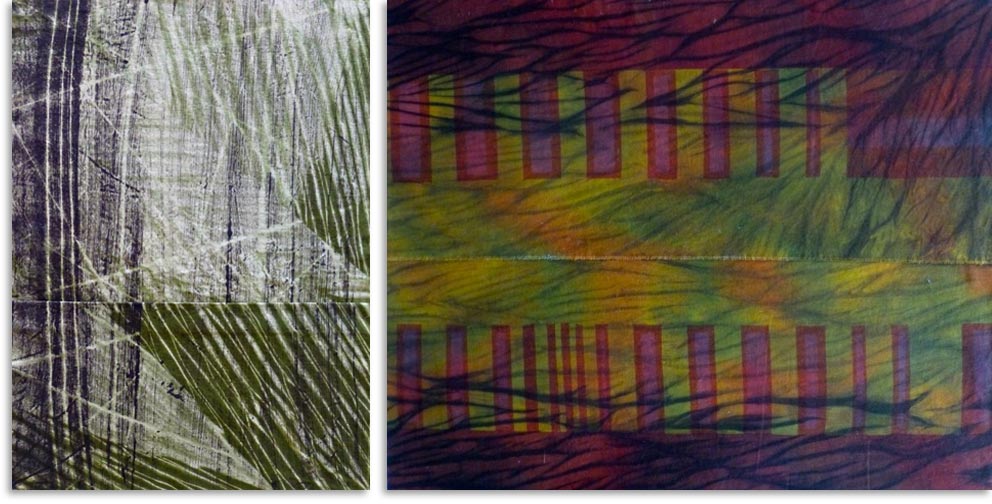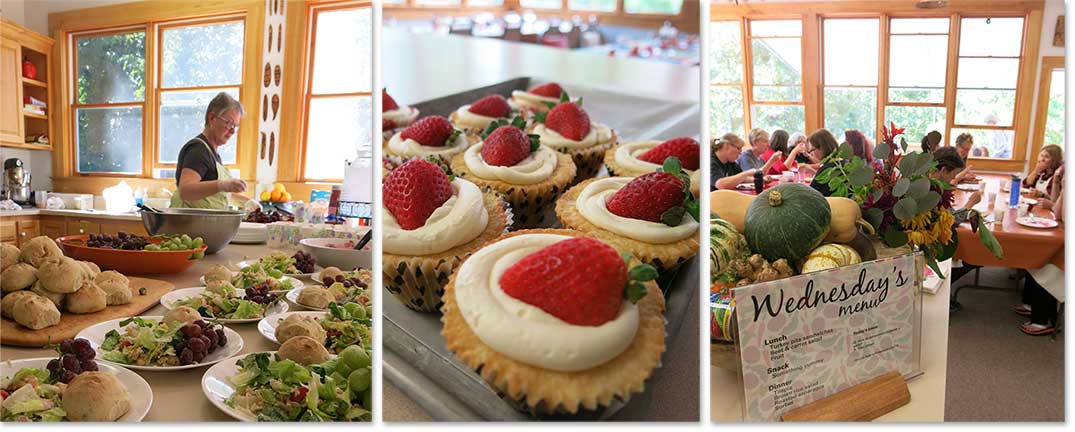Recommended accommodations & offering special rates:
Hampton Inn, Pickerington, Ohio (15-20 minute drive to the Crow Timber Frame Barn)
This clean, comfortable hotel is offering reduced rates. Please ask for "Nancy Crow Workshop" special rate (includes breakfast) using the local phone number 614-864-8383 or book online
Best Western, Pickerington, Ohio (15-20 minute drive to the Crow Timber Frame Barn)
All suites hotel with separate living area and bedroom. Offers complimentary full hot breakfast, free wifi, heated indoor pool, exercise room, & business center. Call 614-860-9804 to book and ask for “Nancy Crow Workshop” special rate.
Holiday Inn Express & Suites, Reynoldsburg (15-20 minute drive to the Crow Timber Frame Barn)
Please ask for "Crow Barn Workshop" special rate (includes breakfast) using the local phone number 614-861-8888 or Email the manager
The Morgan Theater Home, Baltimore, Ohio (5 minute drive to the Crow Timber Frame Barn, mention Crow Barn)
Former silent movie theater converted into a private residence. Three rooms for rent include free cable TV & free high speed internet access. Kitchen/refrigerator/stove & all "kitchen stuff" available. Phone: 740-862-4765 or Email
Rosabella B & B, Millersport, Ohio (10 minute drive to the Crow Timber Frame Barn; mention Crow Barn)
Beautifully restored 1850s Italianate farmhouse is surrounded by farm fields. Breakfast included. The grounds include a wrap-around porch, hammock, patio, pool, hot tub, and fire pit. Phone: 740-467-3580
Other accommodations, please negotiate your own weekly rates:
AirBnB options in the area near the Crow Timber Frame Barn
City of Lancaster, Ohio (15-20 minute drive to the Crow Timber Frame Barn)
• Hampton Inn, 740-654-2999, clean and quiet
City of Reynoldsburg, Ohio (15-20 minute drive to the Crow Timber Frame Barn)
• Fairfield Inn, 614-864-4555
Campgrounds near the Crow Timber Frame Barn
Rippling Stream Campground, Baltimore, OH, 740-862-6065, (5 minute drive to the Crow Timber Frame Barn)
KOA Campground, Buckeye Lake, OH, 740-928-0706, (15-20 minute drive to the Crow Timber Frame Barn)
Hampton Inn, Pickerington, Ohio (15-20 minute drive to the Crow Timber Frame Barn)
This clean, comfortable hotel is offering reduced rates. Please ask for "Nancy Crow Workshop" special rate (includes breakfast) using the local phone number 614-864-8383 or book online
Best Western, Pickerington, Ohio (15-20 minute drive to the Crow Timber Frame Barn)
All suites hotel with separate living area and bedroom. Offers complimentary full hot breakfast, free wifi, heated indoor pool, exercise room, & business center. Call 614-860-9804 to book and ask for “Nancy Crow Workshop” special rate.
Holiday Inn Express & Suites, Reynoldsburg (15-20 minute drive to the Crow Timber Frame Barn)
Please ask for "Crow Barn Workshop" special rate (includes breakfast) using the local phone number 614-861-8888 or Email the manager
The Morgan Theater Home, Baltimore, Ohio (5 minute drive to the Crow Timber Frame Barn, mention Crow Barn)
Former silent movie theater converted into a private residence. Three rooms for rent include free cable TV & free high speed internet access. Kitchen/refrigerator/stove & all "kitchen stuff" available. Phone: 740-862-4765 or Email
Rosabella B & B, Millersport, Ohio (10 minute drive to the Crow Timber Frame Barn; mention Crow Barn)
Beautifully restored 1850s Italianate farmhouse is surrounded by farm fields. Breakfast included. The grounds include a wrap-around porch, hammock, patio, pool, hot tub, and fire pit. Phone: 740-467-3580
Other accommodations, please negotiate your own weekly rates:
AirBnB options in the area near the Crow Timber Frame Barn
City of Lancaster, Ohio (15-20 minute drive to the Crow Timber Frame Barn)
• Hampton Inn, 740-654-2999, clean and quiet
City of Reynoldsburg, Ohio (15-20 minute drive to the Crow Timber Frame Barn)
• Fairfield Inn, 614-864-4555
Campgrounds near the Crow Timber Frame Barn
Rippling Stream Campground, Baltimore, OH, 740-862-6065, (5 minute drive to the Crow Timber Frame Barn)
KOA Campground, Buckeye Lake, OH, 740-928-0706, (15-20 minute drive to the Crow Timber Frame Barn)
